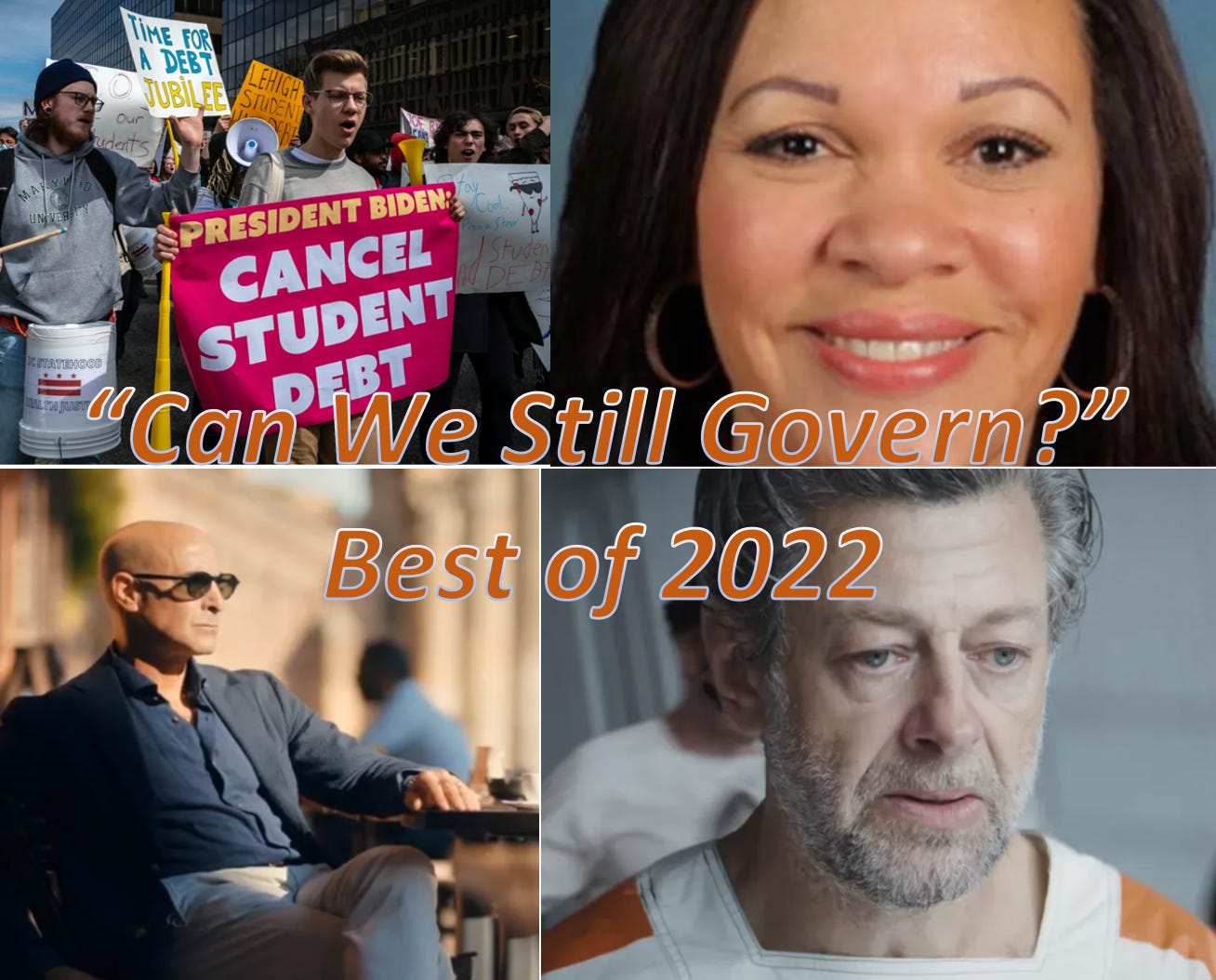Seasons greetings! This is the first full year for “Can We Still Govern?” and so I decided to share both the most-read pieces this year, and the ones that I valued the most for personal reasons.
All of these pieces have in common the goal of providing a broader perspective and deeper understanding to our politics and policy, applying my knowledge as a researcher of governance.
If you missed any of these, it’s a chance to catch up. Please share with others who have not seen it. And consider subscribing!
Reader picks - the most read pieces in 2022:
This was the year that alleging your political enemies were “groomers” or soft on pedos went from the margins to the mainstream. It represents an effort to cater to the sizable QAnon constituency.
The actions of an obscure Wisconsin political appointee who refuses to leave his position long after his term has ended tell us a lot about how GOP democratic backsliding goes beyond the election deniers.
There has been much hand-wringing about the decline of US administrative capacity. There is something to it, but some of the reasons might be different from what has been discussed, which has implications for rebuilding capacity.
Anti-abortion conservatives suddenly became fans of European abortion policies after the Dobbs decision. I explain why the comparisons between European and American abortion policies don’t make a lot of sense without considering lots of factors beyond cut-off dates.
Most of my writing is basically a mix of opinion and policy explainers. Here, I actually did a little internet sleuthing to debunk a viral fake story, and discovered the world of “pink slime” zombie journalism that is replacing local media. An official from the school that was targeted also reached out to say that they valued the pushback, which made me very happy.
Personal favorites in no particular order:
The show Andor was great, and a fun way to write about bureaucracy in a totalitarian state.
This pair are bookends of sort. The first warned about problems with the student loan forgiveness the Department of Education had undertaken, which I’m told was shared by people in the Department. The second was a nod to a job well done, something we don’t do enough, once the Biden administration had released a loan forgiveness process that was a model of administrative simplicity. Now we wait for the courts to decide if it is legal.
I’ve written a lot about Schedule F, a Trump era executive order that I think represents an existential threat to competent public service and executive branch accountability. While the House passed a bill to close the loophole that allows it to exist, the Senate failed to pass such language in the lame duck session. This means that a GOP President in 2024 will likely use this tool.
Didn’t you hear? I’m a travel writer now. Just now a very good one. Take a couple of moments to relive my trip through Italy.


